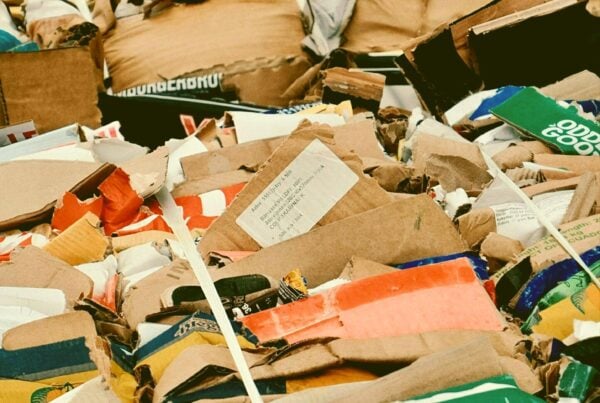A Time of Transformation: Materials Recovery Facility
Waste management in Ireland is undergoing rapid change due to advancements in technology, evolving regulations, and shifting consumer expectations. With the introduction of Greyhound’s new Materials Recovery Facility (MRF), the industry is embracing a new era of efficiency and sustainability. This blog explores the key factors driving change and what the future holds for waste management in Ireland.
Stricter Regulations and Government Policies
Ireland, in alignment with EU directives, is enforcing stricter waste management regulations. Some key policy changes include:
- EU Circular Economy Action Plan: Encouraging reuse and recycling to minimise waste.
- Single-Use Plastics Ban: Phasing out plastics that are difficult to recycle.
- Extended Producer Responsibility (EPR): Holding companies accountable for the entire lifecycle of their products, promoting sustainable packaging and waste reduction.
Technological Advancements in Waste Processing
New technologies are improving the efficiency and accuracy of waste processing. These include:
- AI and Robotics: Automated sorting systems that enhance recycling rates and reduce contamination.
- Data-Driven Waste Management: Smart monitoring systems that optimise collection and processing.
- Advanced Recycling Techniques: Chemical recycling and bio-based waste processing solutions are expanding the types of materials that can be reused.
Changing Consumer Behaviour and Business Responsibility
The public is becoming more environmentally conscious, leading to:
- Increased Demand for Sustainable Products: Businesses are being pressured to adopt eco-friendly packaging.
- Improved Household Recycling Habits: Educational campaigns and clearer guidelines are helping reduce contamination in recycling bins.
- Corporate Sustainability Initiatives: More businesses are committing to net-zero waste policies and partnering with waste management providers for greener solutions.
The Role of Greyhound’s New MRF
Greyhound’s investment in a state-of-the-art MRF will support these industry changes by:
- Boosting Recycling Efficiency: AI-driven sorting will improve material recovery rates.
- Reducing Landfill Dependency: More waste will be diverted into sustainable processing streams.
- Supporting a Circular Economy: High-quality recyclables will be reintroduced into the supply chain, reducing the need for virgin materials.
The Future of Waste Management in Ireland
As the industry continues to evolve, we can expect:
- More Incentives for Businesses and Households: Tax benefits and subsidies for sustainable waste practices.
- Stronger Collaboration Between Public and Private Sectors: Governments and businesses working together on large-scale recycling projects.
- Emerging Innovations in Waste Reduction: Biodegradable alternatives, smart waste tracking, and decentralised waste processing solutions.
Conclusion: Leading the Way to a Sustainable Future
Ireland’s waste management industry is at a turning point, and Greyhound is leading the way with its commitment to innovation. By embracing new technologies, supporting policy changes, and encouraging responsible consumer behaviour, we are helping to build a cleaner, greener Ireland for future generations.
Follow us on Facebook.





